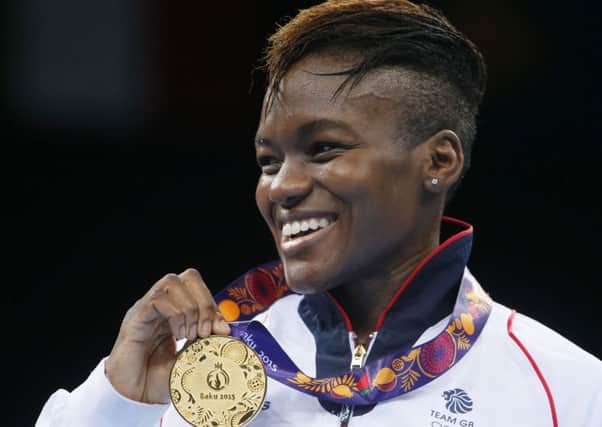Stuart Andrew: Those sports stars who have come out throw the spotlight on our footballers


I am proud to mention two from my county. The boxer Nicola Adams, whom I am proud of, said at the time that she was worried about how everyone would react, so she used to say that she was single rather than that she was with a girl. She felt like she was lying all the time, and she did not like having to do that, so, in the end, she thought, “Well, this is who I am. And if there is nothing I can do about it, why should I hide it?”
Keegan Hirst, the rugby player from Batley, said: “I tick every macho box. How could I be gay? I’m from Batley for goodness’ sake. No one is gay in Batley.”
Advertisement
Hide AdAdvertisement
Hide AdThose are two brave individuals who have come out and brought a bit of a spotlight on to the issue.
We notice most sharply that we have a problem when one of our nation’s most successful athletes thinks that sexism and homophobia are still huge problems in sport, and that they are inextricably linked.
Sue Day, the former women’s rugby captain, said: “If she has got physical strength or something that is not perceived to be feminine, then she must be a lesbian. If a man is gay, people think ‘He can’t possibly be good at sport because he is not masculine enough’.”
She went on to say: “There is a huge amount of sexism in sport. The men have been allowed to play sport for many years whereas the women haven’t. Sexism and homophobia are so inextricably linked.”
Advertisement
Hide AdAdvertisement
Hide AdThe perception that Sue Day spoke of is widely expressed in sport at all levels by professionals and spectators alike. I cannot emphasise enough how welcoming and inclusive sport is becoming, and much credit for that must go to the spectators. The vast majority of fans find the shared bonds of loyalty to their team far more important than anything else, but we must aim for the best on the field as well as off it. There is clearly some significant work to do.
I do not want to be perceived as being only critical of the situation in our sports clubs and among our spectators, because I am not. There is much good practice from clubs and governing bodies and great examples of spectators working together on the issue, but we need to pull all of that work together.
One thing that triggered my effort to secure the debate was a BBC Radio 5 Live survey. One thing that struck me was the finding that eight per cent of football fans would stop supporting their team if one of its players came out as gay. Football is the one sport which thousands of people go to watch every week and is followed as a national treasure. I think, if we are honest, it is the focus of concerns about homophobia. Those concerns are not limited to football, but it does seem to have a particular problem. As I said, it is by far the biggest sport in the country so it could therefore be the leader in this area and drive change across sport and throughout society.
When that survey came out, FA chairman Greg Clarke said that now may not be the right time to come out. I am a fairly level-headed person, and I always try to give people the benefit of the doubt.
Advertisement
Hide AdAdvertisement
Hide AdMaybe he made those comments from the perspective of wanting to protect players. I can sort of understand that, but saying “Now’s not the time” is a very different point and sends quite a negative message to the players and the general public. Now is exactly the right time for us to address this.
I look back in awe at how far society and this country have come in my lifetime. When I was in my teens, which feels like a billion years ago, the age of consent was 21, and now we have equal marriage in our country. That is fantastic. To say that now is not the time for gay players to come out is just not acceptable.
Nobody should have to make a choice between being open about who they are and continuing to take part in sport. That choice will ultimately cost people personally and will leave sports across the country without talent that could be adding so much to our future success. I hope we will be able to do as much as we can. All of us were very proud when Britain came back from the Olympics with so many medals. Let us be proud of every area of sport that truly reflects every part of our society.
Stuart Andrew is the Pudsey MP who led a Parliamentary debate on homophobia in sport. This is an edited version.